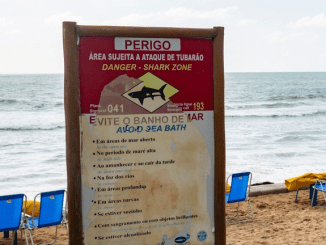As communities devastated by Hurricane Helene struggle to rebuild, Elon Musk’s Starlink has offered a helping hand—or so it seemed. The satellite internet provider, part of Musk’s SpaceX, initially announced that it would provide “free” internet service to those affected by the hurricane. However, survivors quickly discovered that accessing this service wasn’t truly free; they would still need to pay $400 for the required hardware. This revelation has sparked a wave of criticism, with many accusing Starlink of exploiting vulnerable people in a time of crisis. Here’s a closer look at the unfolding controversy.

Starlink’s “free” internet offer for Hurricane Helene survivors raised concerns due to a $400 hardware fee. Image Credit: Getty
The Promise of Free Internet Service for Hurricane Survivors
In the aftermath of Hurricane Helene, which ravaged parts of the South, leaving hundreds dead and thousands without power, Starlink announced an initiative to provide 30 days of free internet service to survivors. The company took to social media, sharing a message of support that suggested those affected could access Starlink’s high-speed satellite internet without any upfront costs.
“For those impacted by Hurricane Helene, or looking to support response and recovery efforts in affected areas, Starlink is now free for 30 days,” read a post shared on Twitter. Musk himself retweeted the message, stating that Starlink terminals in the disaster zones would automatically work without the need for payment. The post quickly went viral, with many praising the gesture as a much-needed lifeline for people stranded without connectivity in isolated areas.
The Reality Behind the “Free” Offer: A $400 Hardware Fee
However, the story took a turn when survivors discovered that they would need to pay $400 for the necessary satellite dish and related equipment to access the service. This upfront cost for hardware was not initially mentioned in Starlink’s promotional materials, leading to accusations of a “bait and switch” tactic. While the internet access itself might be free for 30 days, the cost of the equipment has left many feeling misled.
Kinney Baughman, a resident of Boone, North Carolina, was one of those affected by Hurricane Helene and criticized the offer. He described it as a disappointment, suggesting that Starlink was taking advantage of vulnerable people rather than providing genuine assistance. “This isn’t what I expected when they said free,” he said. “By the time we get the equipment, power will probably be back up, and we won’t need it.”
The Hidden Costs and Practical Challenges of Using Starlink Post-Hurricane
The $400 fee is not the only factor that makes the offer less practical for many survivors. Even if residents are willing and able to pay for the equipment, there are significant logistical challenges that come with setting up Starlink in disaster-hit areas:

Image Credit: Getty
1. Lack of Electricity
- One of the biggest hurdles facing survivors is the widespread lack of electricity. With many areas still dealing with power outages, having a satellite dish is of little use without the electricity needed to run it. For families who are waiting for their power to be restored, the Starlink setup may not provide immediate relief.
2. Delays in Access
- In addition to the hardware cost, survivors would also face potential shipping delays. As the Starlink equipment needs to be delivered, many users could be waiting several days to a week before they can even begin to set it up. By that time, traditional internet service providers may already have begun restoring connectivity in some areas.
3. Additional Setup Requirements
- Setting up the Starlink system requires space and a clear view of the sky, which may be difficult to manage for people in urban areas or those whose homes have been significantly damaged. For many, the practicality of the solution in an emergency situation is questionable.

Elon Musk retweeted Starlink’s post. Image Credit: X/Elon Musk
Starlink’s Response to Criticism: A Special Help Page for Victims
In response to the backlash, Starlink created a dedicated help page for hurricane survivors. The page provides instructions for people who already own a Starlink dish and want to have their fees waived. However, they must submit a support ticket, and Starlink has not specified how long it will take to process these requests.
Despite this gesture, many users remain skeptical. They argue that the company should have been more transparent about the costs involved upfront. Others have suggested that Starlink should waive the hardware fee entirely for disaster survivors, especially given Musk’s emphasis on the importance of internet access in crisis situations.
Public Reaction: Praise for the Concept, Criticism for the Execution
The initial announcement drew praise from those who saw it as a compassionate gesture during a time of great need. However, the reality of the hardware costs has shifted public sentiment. On social media, users have voiced their disappointment and frustration, feeling that the company could have done more to support people without access to basic resources.

The storm has killed over 200, leaving many without power and internet access. Image Credit: Getty
- One Twitter user commented, “Charging $400 for ‘free’ internet is misleading at best. In a disaster, people need help, not hidden costs.”
- Another user added, “Musk talks about helping people, but this feels more like a sales pitch than actual aid.”
Meanwhile, some users have defended Starlink, arguing that the company is still providing valuable service and that the hardware costs are justified. They suggest that even with the upfront fee, Starlink remains an important option for people who need reliable internet during the recovery period.
The Broader Issue: Should Companies Profit from Disaster Relief Efforts?
The controversy surrounding Starlink’s offer raises broader ethical questions about the role of private companies in disaster relief. Should businesses profit from providing essential services during emergencies, or should they absorb the costs as part of a corporate responsibility initiative? Critics argue that companies with vast resources, such as SpaceX, have a moral obligation to provide aid without strings attached, especially when promoting their services as “free.”

Kinney Baughman criticized Starlink’s offer as a “bait and switch” exploiting vulnerable people. Image Credit: Getty
Musk has long advocated for the role of Starlink in disaster relief, previously deploying the service to areas affected by wildfires and hurricanes. However, this latest incident has some questioning whether the company’s motives are truly altruistic. Many believe that companies should prioritize the needs of disaster survivors over profit, offering genuine aid without hidden fees or costs.
Conclusion: A Mixed Response to Starlink’s Offer

Hurricane Helene has severely impacted communities across the South. Image Credit: Getty
Elon Musk’s Starlink initiative for Hurricane Helene survivors has highlighted both the potential and pitfalls of corporate disaster relief. While the offer of free internet seemed generous at first, the $400 hardware cost has left many feeling disappointed. As communities continue to recover from the storm’s impact, the situation serves as a reminder of the importance of transparency and corporate responsibility in times of crisis.
As the debate continues, one thing is clear: survivors of natural disasters need straightforward solutions, not hidden fees or complex setups. For now, Musk’s Starlink has sparked conversation on the role of businesses in providing aid, and the public response may well shape how such offers are handled in the future. Ultimately, access to communication should be a lifeline, not an opportunity for profit.


